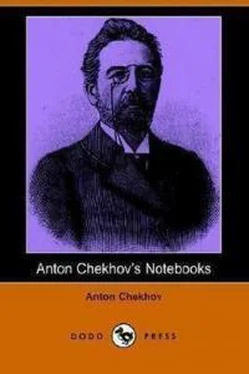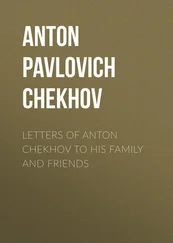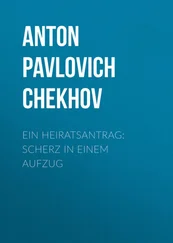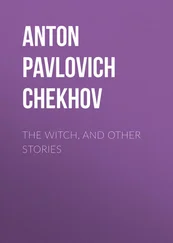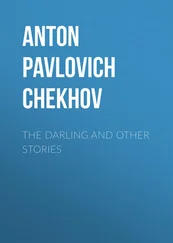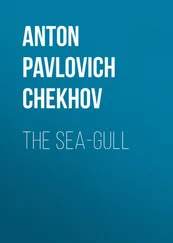Антон Чехов - Notebooks of Anton Chekhov
Здесь есть возможность читать онлайн «Антон Чехов - Notebooks of Anton Chekhov» весь текст электронной книги совершенно бесплатно (целиком полную версию без сокращений). В некоторых случаях можно слушать аудио, скачать через торрент в формате fb2 и присутствует краткое содержание. Год выпуска: 2014, Издательство: epubBooks Classics, Жанр: Биографии и Мемуары, на английском языке. Описание произведения, (предисловие) а так же отзывы посетителей доступны на портале библиотеки ЛибКат.
- Название:Notebooks of Anton Chekhov
- Автор:
- Издательство:epubBooks Classics
- Жанр:
- Год:2014
- ISBN:нет данных
- Рейтинг книги:4 / 5. Голосов: 1
-
Избранное:Добавить в избранное
- Отзывы:
-
Ваша оценка:
- 80
- 1
- 2
- 3
- 4
- 5
Notebooks of Anton Chekhov: краткое содержание, описание и аннотация
Предлагаем к чтению аннотацию, описание, краткое содержание или предисловие (зависит от того, что написал сам автор книги «Notebooks of Anton Chekhov»). Если вы не нашли необходимую информацию о книге — напишите в комментариях, мы постараемся отыскать её.
Notebooks of Anton Chekhov — читать онлайн бесплатно полную книгу (весь текст) целиком
Ниже представлен текст книги, разбитый по страницам. Система сохранения места последней прочитанной страницы, позволяет с удобством читать онлайн бесплатно книгу «Notebooks of Anton Chekhov», без необходимости каждый раз заново искать на чём Вы остановились. Поставьте закладку, и сможете в любой момент перейти на страницу, на которой закончили чтение.
Интервал:
Закладка:
* * * * *
A Tchech Vtitchka.
* * * * *
A man, forty years old, married a girl of twenty–two who read only the very latest writers, wore green ribbons, slept on yellow pillows, and believed in her taste and her opinions as if they were law; she is nice, not silly, and gentle, but he separates from her.
* * * * *
When one longs for a drink, it seems as though one could drink a whole ocean—that is faith; but when one begins to drink, one can only drink altogether two glasses—that is science.
* * * * *
For a farce: Fildekosov, Poprygunov.
* * * * *
In former times a nice man, with principles, who wanted to be respected, would try to become a general or priest, but now he goes in for being a writer, professor….
* * * * *
There is nothing which history will not justify.
* * * * *
Zievoulia. [16] A name or word invented by Chekhov meaning "One who yawns for a long time with pleasure."
* * * * *
The crying of a nice child is ugly; so in bad verses you may recognize that the author is a nice man.
* * * * *
If you wish women to love you, be original; I know a man who used to wear felt boots summer and winter, and women fell in love with him.
* * * * *
I arrive at Yalta. Every room is engaged. I go to the "Italy"—not a room available. "What about my room number 35"—"It is engaged." A lady. They say: "Would you like to stay with this lady? The lady has no objection." I stay in her room. Conversation. Evening. The Tartar guide comes in. My ears are stopped, my eyes blindfolded; I sit and see nothing and hear nothing….
* * * * *
A young lady complains: "My poor brother gets such a small salary—only seven thousand!"
* * * * *
She: "I see only one thing now: you have a large mouth! A large mouth! An enormous mouth!"
* * * * *
The horse is a useless and pernicious animal; a great deal of land has to be tilled for it, it accustoms man not to employ his own muscles, it is often an object of luxury; it makes man effeminate. For the future not a single horse.
* * * * *
N. a singer; speaks to nobody, his throat muffled up—he takes care of his voice, but no one has ever heard him sing.
* * * * *
About absolutely everything: "What's the good of that? It's useless!"
* * * * *
He wears felt boots summer and winter and gives this explanation: "It's better for the head, because the blood, owing to the heat, is drawn down into the feet, and the thoughts are clearer."
* * * * *
A woman is jocularly called Fiodor Ivanovitch.
* * * * *
A farce: N., in order to marry, greased the bald patch on his head with an ointment which he read of in an advertisement, and suddenly there began to grow on his head pig's bristles.
* * * * *
What does your husband do?—He takes castor oil.
* * * * *
A girl writes: "We shall live intolerably near you."
* * * * *
N. has been for long in love with Z. who married X.; two years after the marriage Z. comes to N., cries, wishes to tell him something; N. expects to hear her complain against her husband; but it turns out that Z. has come to tell of her love for K.
* * * * *
N. a well known lawyer in Moscow; Z., who like N. was born in Taganrog, comes to Moscow and goes to see the celebrity; he is received warmly, but he remembers the school to which they both went, remembers how N. looked in his uniform, becomes agitated by envy, sees that N.'s flat is in bad taste, that N. himself talks a great deal; and he leaves disenchanted by envy and by the meanness which before he did not even suspect was in him.
* * * * *
The title of a play: The Bat.
* * * * *
Everything which the old cannot enjoy is forbidden or considered wrong.
* * * * *
When he was getting on in years, he married a very young girl, and so she faded and withered away with him.
* * * * *
All his life he wrote about capitalism and millions, and he had never had any money.
* * * * *
A young lady fell in love with a handsome constable.
* * * * *
N. was a very good, fashionable tailor; but he was spoiled and ruined by trifles; at one time he made an overcoat without pockets, at another a collar which was much too high.
* * * * *
A farce: Agent of freight transport company and of fire insurance company.
* * * * *
Any one can write a play which might be produced.
* * * * *
A country house. Winter. N., ill, sits in his room. In the evening there suddenly arrives from the railway station a stranger Z., a young girl, who introduces herself and says that she has come to look after the invalid. He is perplexed, frightened, he refuses; then Z. says that at any rate she will stay the night. A day passes, two, and she goes on living there. She has an unbearable temper, she poisons one's existence.
* * * * *
A private room in a restaurant. A rich man Z., tying his napkin round his neck, touching the sturgeon with his fork: "At least I'll have a snack before I die"—and he has been saying this for a long time, daily.
* * * * *
By his remarks on Strindberg and literature generally L.L. Tolstoi reminds one very much of Madam Loukhmav. [17] L.L. Tolstoi was Leo Nicolaievitch'a son, Madame Loukhmav a tenth rate woman–writer.
* * * * *
Diedlov, when he speaks of the Deputy Governor or the Governor, becomes a romanticist, remembering "The Arrival of the Deputy Governor" in the book A Hundred Russian Writers .
* * * * *
A play: the Bean of Life.
* * * * *
A vet. belongs to the stallion class of people.
* * * * *
Consultation.
* * * * *
The sun shines and in my soul is darkness.
* * * * *
In S. I made the acquaintance of the barrister Z.—a sort of Nika, The Fair … He has several children; with all of them he is magisterial, gentle, kind, not a single rude word; I soon learn that he has another family. Then he invites me to his daughter's wedding; he prays, makes a genuflection, and says: "I still preserve religious feeling; I am a believer." And when in his presence people speak of education, of women, he has a naïve expression, exactly as if he did not understand. When he makes a speech in Court, his face looks as if he were praying.
* * * * *
"Mammy, don't show yourself to the guests, you are very fat."
* * * * *
Love? In love? Never! I am a Government clerk.
* * * * *
He knows little, even as a babe who has not yet come out of his mother's womb.
* * * * *
From childhood until extreme old age N. has had a passion for spying.
* * * * *
He uses clever words, that's all—philosophy … equator … (for a play).
* * * * *
The stars have gone out long ago, but they still shine for the crowd.
* * * * *
As soon as he became a scholar, he began to expect honors.
* * * * *
He was a prompter, but got disgusted and gave it up; for about fifteen years he did not go to the theatre; then he went and saw a play, cried with emotion, felt sad, and, when his wife asked him on his return how he liked the theatre, he answered: "I do not like it."
* * * * *
The parlormaid Nadya fell in love with an exterminator of bugs and black beetles.
* * * * *
A Councillor of State; it came out after his death that, in order to earn a rouble, he was employed at the theatre to bark like a dog; he was poor.
* * * * *
You must have decent, well–dressed children, and your children too must have a nice house and children, and their children again children and nice houses; and what is it all for?—The devil knows.
* * * * *
Perkaturin.
* * * * *
Every day he forces himself to vomit—for the sake of his health, on the advice of a friend.
Читать дальшеИнтервал:
Закладка:
Похожие книги на «Notebooks of Anton Chekhov»
Представляем Вашему вниманию похожие книги на «Notebooks of Anton Chekhov» списком для выбора. Мы отобрали схожую по названию и смыслу литературу в надежде предоставить читателям больше вариантов отыскать новые, интересные, ещё непрочитанные произведения.
Обсуждение, отзывы о книге «Notebooks of Anton Chekhov» и просто собственные мнения читателей. Оставьте ваши комментарии, напишите, что Вы думаете о произведении, его смысле или главных героях. Укажите что конкретно понравилось, а что нет, и почему Вы так считаете.
